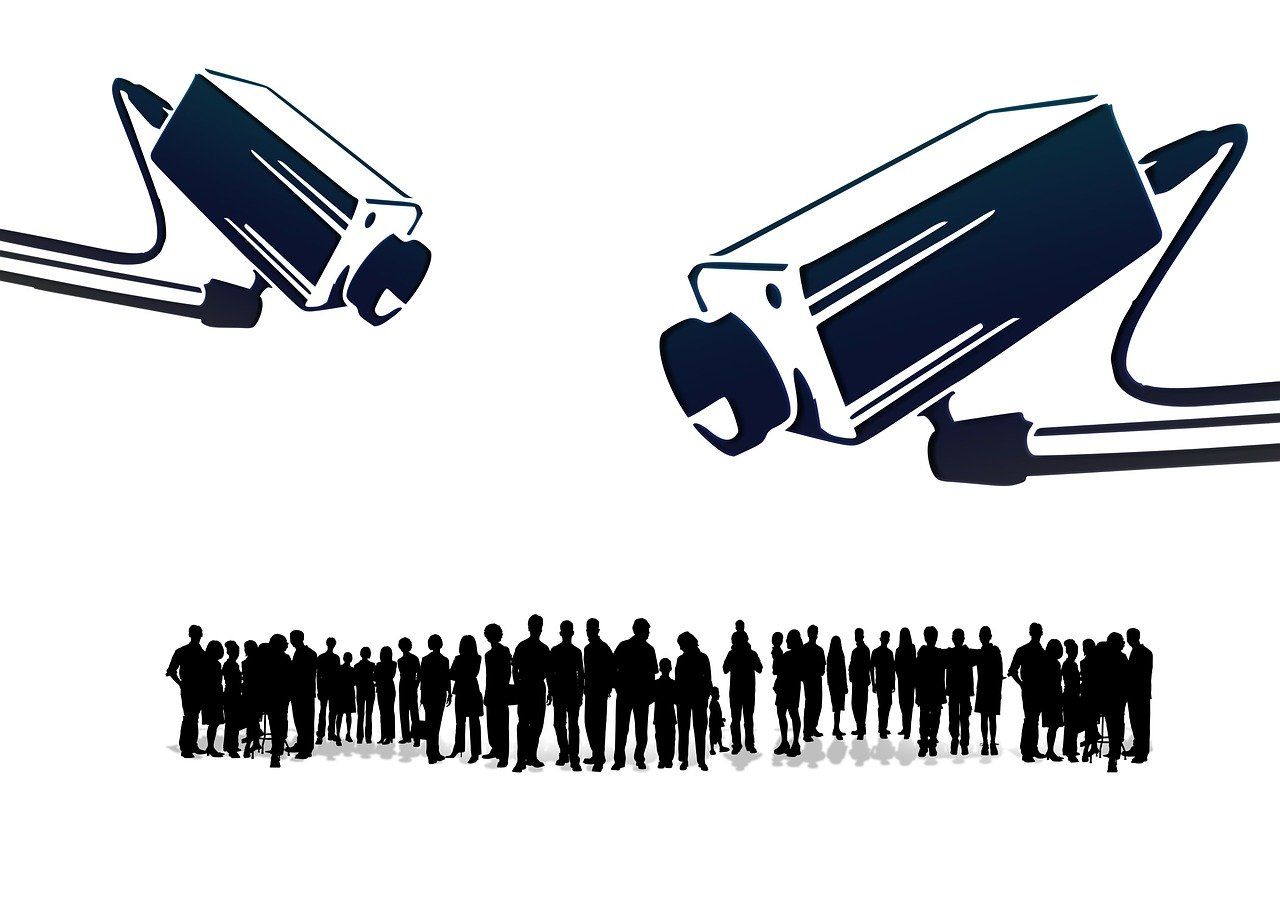We must ban facial recognition to defend privacy.
Facial recognition is one of the most dangerous surveillance technologies. It must be banned now!
How facial recognition works
A facial recognition system uses facial images from a database to find a match. With the help of surveillance cameras, companies and authorities can pin down potential targets with facial recognition. This is a severe threat to our right to privacy.
Of course, facial recognition can also be used by people for their own purposes: for instance, to automatically unlock a smart device or even a door. However, when used in public, facial recognition is very dangerous.
Here we explain in more detail how face recognition works and how you can stop it.
Clearview scandal
The threats of facial recognition became obvious to everyone with the Clearview scandal.
The company Clearview has used publicly available pictures from the internet to build an image database. By scraping the pictures online, they never asked for people’s consent when adding personal pictures to their database. Even worse: They used all pictures available, which means even if someone else uploaded a picture of you to the internet without asking for your consent, this picture might have ended up in the Clearview database.
Check here how you can opt out from the Clearview database.
By matching pictures with online profiles or image captions, it becomes very easy to put a name to the pictures and, thus, identify almost everyone whose pictures are contained in the database.
The Clearview scandal has shown that it is close to impossible to stay out of a facial recognition database. Whether you upload a picture to social media, or whether a friend does it, whether the local newspaper does a report about your kids’ school project, or whether your sports club’s group picture is published on the club’s website, almost everyone’s picture is going to end up in such a database, even without people’s consent.
Since the pictures are already there, we need to look very closely at the dangers of facial recognition.
Problem with accuracy
One major problem is that no facial recognition software is 100 per cent accurate. In fact, the technology is particularly bad when it comes to identifying people of color, ethnic minorities, women or young people. This increases the risk for innocents within these groups to become the authorities’ target and to become the prime suspect in a criminal investigation without having done anything wrong.
Two recent lawsuits in the USA, in which the prosecutor’s office identified a suspect based on location data, have shown how the use of such vague identification techniques can lead to the ruin of people’s lives, even though they were innocent.
The accuracy problem of facial recognition now puts millions of innocents at risk to becoming the prime target of a criminal investigation. With such a potentially devastating side-effect, everyone can easily understand why we must ban facial recognition now.
However, there is a much more severe threat arising from this technology.
Threat to Human Rights
Facial recognition has become one of the worst threats, not only to individuals, but also to societies. With facial recognition software, individuals can become a target of a criminal investigation even when completely innocent. Much worse than that, face recognition enables the authorities to target people even when they are not doing anything illegal. And this has already happened.
Facial recognition has been used to target people engaging in protected speech. In the near future, face recognition might not just be used to hunt down criminals, but it can also be used to target people opposing the current government.
Real-time facial recognition is already being used in China and Hong Kong. It is obvious why an oppressive system like China with its social credit system wants to monitor their citizens with real-time face surveillance.
This is a clear invasion of people’s privacy who can be tracked wherever they go, just like cars can be tracked via their license plates - or now with cars becoming smarter, tracking in cars will expand just like it did with apps.
Threat to democracy
Facial recognition - and its potential abuse by governments around the world to supress the opposition - is a direct attack on privacy and free speech. As a consequence, facial recognition is a direct attack on democracy itself.
How would an opposing group engage in free speech, even in public protests if everyone joining must fear of being tracked, identified and potentially put on the authorities’ watch list?
While our democratic legislation as well as our Western values currently protect us from such a scenario, the threat is not far-fetched.
Let’s ban facial recognition!
That’s why we must ban facial recognition now - while we still have the safeguards of a democracy that enable us to outlaw this dangerous technology before it is being abused by companies or the authorities.
Already in January, the Electronic Privacy Information Center (EPIC) together with 40 privacy-focused groups published a letter urging federal agencies to suspend the use of facial recognition systems.
While the federal government shows no interest in this recommendation, it is no surprise that American cities like Portland, San Francisco, Oakland and Boston have already banned facial recognition. In Portland the mayor Ted Wheeler points to the dangers of face recognition when explaining why the city outlawed this technology:
“Technology exists to make our lives easier, not for public and private entities to use as a weapon against the very citizens they serve and accommodate.”
And he is absolutely right. Because let’s face it: Our pictures, our identities are already publicly available online. Now we must make sure that no one can track our real-life movements and abuse this knowledge. The best way to achieve this would be to take down surveillance cameras.
Banning facial recognition is, at least, a first step in this direction.

